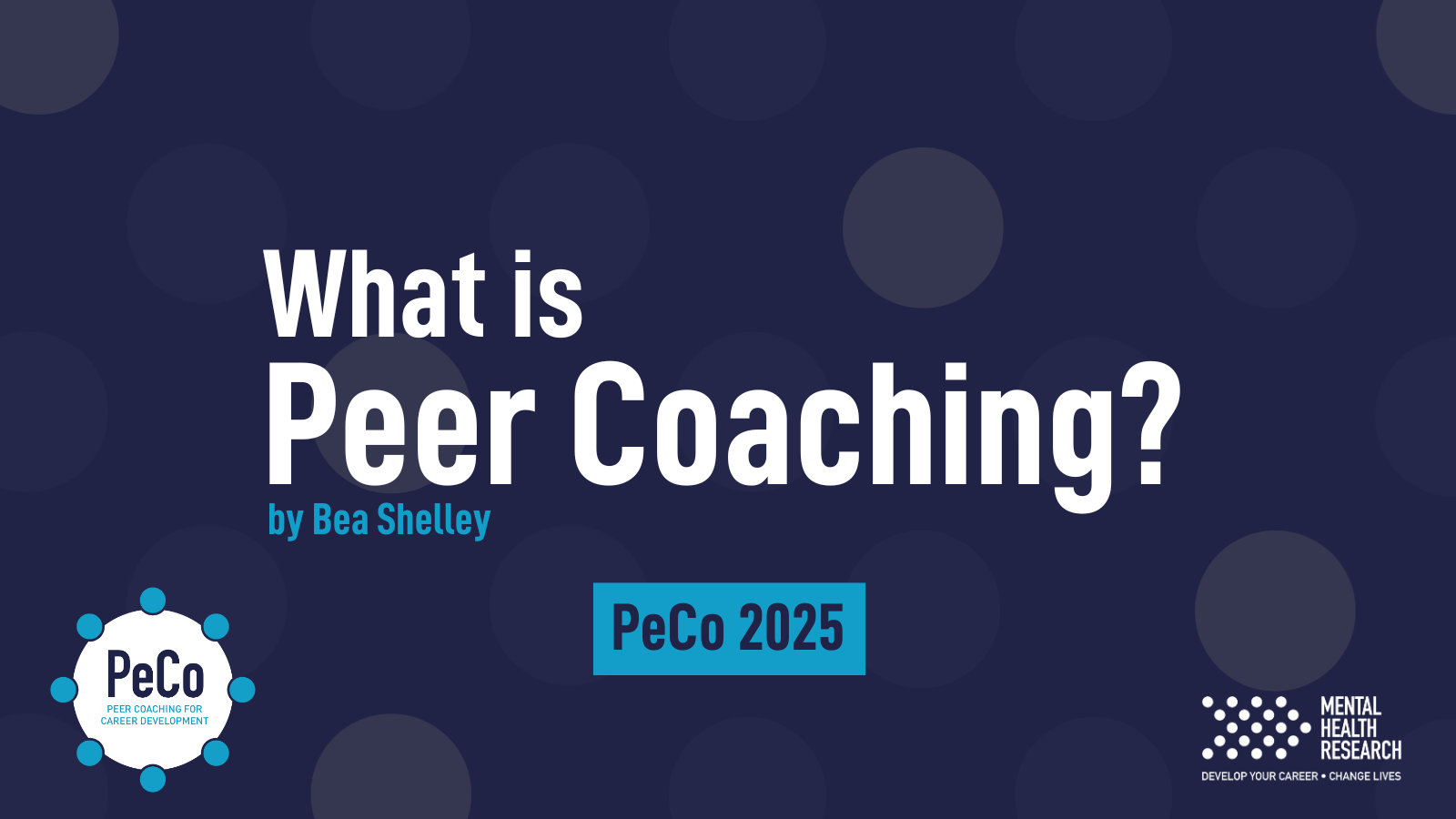
PeCo is a peer coaching programme – but what is peer coaching? Bea Shelley, a trainee coach, explains…
Coaching can be described as an exploratory and practical conversation that supports a ‘thinker’ to do some really good quality thinking on an issue, challenge or goal of their choosing, while the other person in the conversation – the ‘listener’ or the coach, listens carefully, asks questions and offers reflections to support the thinker to bring their best thinking to bear.
Peer coaching takes a similar approach – but provides the structure, skills and space for individuals to support their peers. In our programme, we draw on action learning methodology so that instead of just one thinker and one listener, there is one thinker and a small group of listeners. Action Learning Sets – “A continuous process of learning and reflection that happens with the support of a group of colleagues, working with real problems, with the intention of getting things done” (McCormack et al 2004) – were invented by physicist Reg Revans at Cambridge University in the 1940s, who recognized the impact of enquiry, ‘sharing ignorance’, exploring experiences and taking time for reflection.
We discovered that in the GROW programme, participants particularly valued the peer support and coaching elements. We were also aware that the researcher environment can be both high-pressured and quite isolating. We therefore designed the PeCo programme to provide a space for exploring and addressing challenges collaboratively. We have embedded core coaching skills training in the skills: asking open questions, not offering advice (easier said than done!) and sensitive listening. This serves both to assure a high-quality programme experience and also to leave participants with a key management and supervision technique to apply within their researcher context and future career.
Due to the nature of peer coaching, everyone in the coaching circles commits to it being a confidential space and comes to it with the intention of supporting each other. In my experience peer coaching circles are mutually supportive spaces. As many mental health researchers have some clinical training in these sorts of skills and qualities, mental health researchers take to it quite well!
We recognise that quality peer coaching doesn’t just happen on its own! Sessions are carefully set up by a group facilitator with experience in coaching and managing such conversations. Each peer coaching session takes the form of an Action Learning Set with a very clear structure. First the thinker – ‘an issue holder’ – speaks about their issue, then the group are invited to pose questions (online on Zoom this takes place in the chat function), then thinker has the opportunity to select and explore questions that they find most relevant. Finally, the thinker may choose to invite the group to share any relevant experiences they have.
In this way a thinker gets a chance to explore their issue in a controlled, structured, confidential setting, and gets a chance to explore the perspective of peers who may well have relevant experience. In our experience of running a peer coaching programme with mental health researchers last year, researchers have gained clarity, purpose and direction on the issues they were facing through peer coaching. Nancy Kline, one big figure in the coaching space, suggests we do our best thinking in the presence of an attentive listener (Time to Think, 1999). Our PeCo programme provides attentive listening, space to reflect and a supportive network to enable participants to accelerate their problem-solving and develop insights and actions to progress their goals.
PeCo – our peer coaching programme for postdoctoral mental health researchers – is open now for applications. Apply by Monday 14 April, 9am.
